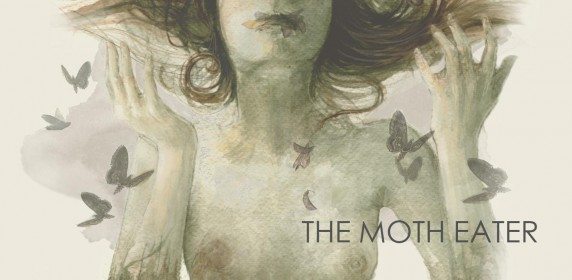Because every day another band records another song. Because 83% of those songs are unlistenable and you can’t be bothered to sift through the dreck. Because metal is about not giving a shit and waking your own personal storm. Because music is universal, expression is boundless, and even indie labels (whatever that means these days) don’t know everything, Decibel brings you Throw Me a Frickin’ Label Hack.

In the maverick spirit of bands like Melvins and, more recently, Slayer, this Friday we bring you Throw Me a Frickin’ Label Hack Lite. Recently we heard this tidy little instrumental EP by French rock composer Christophe Le Roux and really enjoyed its playful heaviness, sonic clarity, and dedication to narrative cohesion. There’s no monumental revelation here, no high-five-inspiring sicker-than-thou brutality, just some well recorded moments that allow you to transcend the mundane and live in the ethereal realm for about 10 minutes. We liked the music enough to present it here for your taking or leaving, and we asked the man behind the freaky topless bug lady to tell us a little more.
What is your music background?
I studied music theory in France at the CEMMI (which no longer exist). The course was mostly based on jazz improv but I’ve always had a preference for written music, especially sophisticated guitar riffs and odd time signatures.
What influenced you to make Odela’s music?
I guess my biggest influence is Dream Theater, but I find inspiration in anything really. To name a few bands that everybody knows [which] I’ve listened to a lot in the past decade: Paradise Lost, Pantera, Sepultura, Opeth, and most recently Animals as Leaders.
Your Bandcamp page says you are French… how did you end up recording in Canada?
I have dual citizenship, both French and Canadian so I moved to Canada (Calgary) and lived there for 6 years. Recording in Canada was pure destiny.
Was the music fully composed before you recorded, or did anything change during the recording process with Alan Sacha Laskow involved?
Yes the music was fully composed except for the choir voices during the outro of The Moth Eater. That being said, Sacha has contributed so much to the end result thanks to his expertise in sound engineering; he turned what was on paper into real music and went far beyond my expectations.
How did the cover image for the EP come about? What do you like about it being attached to your music?
I first came across Mariella’s artwork at a Jung People CD release concert where she had a few paintings on display. I was blown away by her talent so I searched online to see more of her stuff, and that’s when I found the image of The Moth Eater. I like the morbid and beautiful character of this picture.
Some of the songs on the EP are very short – are they absolutely complete, or are any of them ideas that could be expanded further?
I feel the songs are the right length. I’m a huge prog fan but I chose to do something rather short and pretty straight forward on this EP – though I do intend to write real long and proggy pieces in the future. I’ve actually had a few people telling me the songs were too short; I take this as a compliment and constructive criticism.
What non-musical ideas do you think enter into your composition/performance process?
The general idea behind the music is the dramatic ambience that I’ve tried to recreate throughout the riffs, the harmony and the low tuning. “Orphan in the Playground” is about solitude.
What hopes do you have for the Odela project in the future?
I hope I get the chance to do a full length album in the near future as I have a lot more music to share with the world! But right now I have other priorities and I’m working on other projects. I would love to see Odela’s music featured in a movie or a video game.






